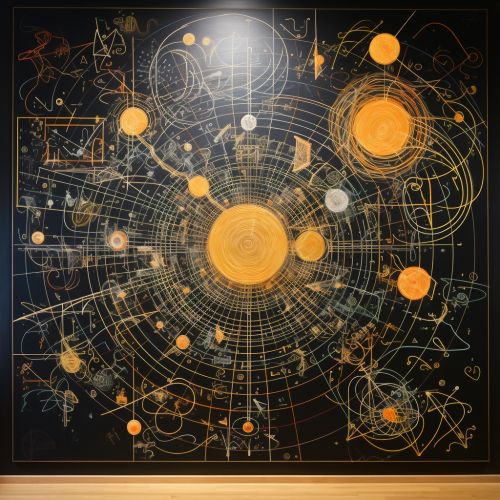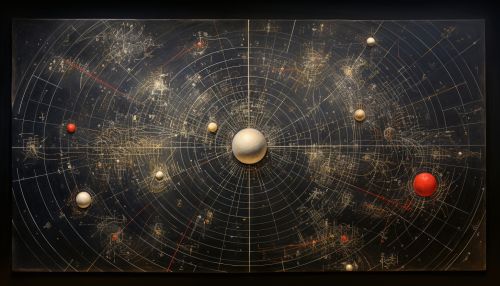Theoretical Physics
Introduction
Theoretical physics is a branch of physics that employs mathematical models and abstractions of physical objects and systems to rationalize, explain and predict natural phenomena. This is in contrast to experimental physics, which uses experimental tools to probe these phenomena.
History
The advancement of science, and hence theoretical physics, depends on the interplay between experimental studies and theory. In some cases, theoretical physics adheres to standards of mathematical rigor while giving little weight to experiments and observations. For example, while developing the theory of general relativity, Albert Einstein was simply trying to bring in order the residual anomalies that were unexplained within the framework of Newtonian mechanics.


Fundamentals of Theoretical Physics
Theoretical physics begins with a mathematical model, a theory or a hypothesis, that is a proposed description of natural phenomena. The description is usually mathematical, expressed in terms of equations. It is not a requirement that the hypothesis should describe all observations accurately. Some scientists may choose to focus on a particular model, while others may adopt a more composite model.
Fields of Theoretical Physics
Theoretical physics has a wide range of fields, each with its own specific areas of study and associated techniques. Some of these fields include:
Quantum Mechanics
Quantum mechanics is a fundamental theory in physics that provides a description of the physical properties of nature at the scale of atoms and subatomic particles. It is the foundation of all quantum physics including quantum chemistry, quantum field theory, quantum technology, and quantum information science.
Statistical Mechanics
Statistical mechanics is a branch of theoretical physics that uses probability theory to study the average behaviour of a mechanical system, where the state of the system is uncertain.
Condensed Matter Physics
Condensed matter physics is a branch of physics that deals with the physical properties of condensed phases of matter, where particles adhere to each other.
Astrophysics
Astrophysics is the branch of astronomy that employs the principles of physics and chemistry to ascertain the nature of astronomical objects, rather than their positions or motions in space.
Theoretical Physics vs Experimental Physics
Theoretical physics is often contrasted with experimental physics. Experimental physics generates data and observations, while theoretical physics generates theories and predictions. The two fields complement each other, with theoretical physics attempting to explain the results of experiments, and experiments being used to confirm theoretical predictions.
The Role of Mathematics in Theoretical Physics
Mathematics is the language of theoretical physics. Every mathematical statement used by physicists has a clear physical interpretation. The mathematical structures used in physics include differential equations, group theory, geometry, and algebra.
Conclusion
Theoretical physics has played a crucial role in the development of modern society. It has led to the development of many technologies that have transformed our world, such as the computer, the internet, and nuclear power. Despite the complexity and abstract nature of theoretical physics, it continues to be an exciting and rapidly developing field of study.
